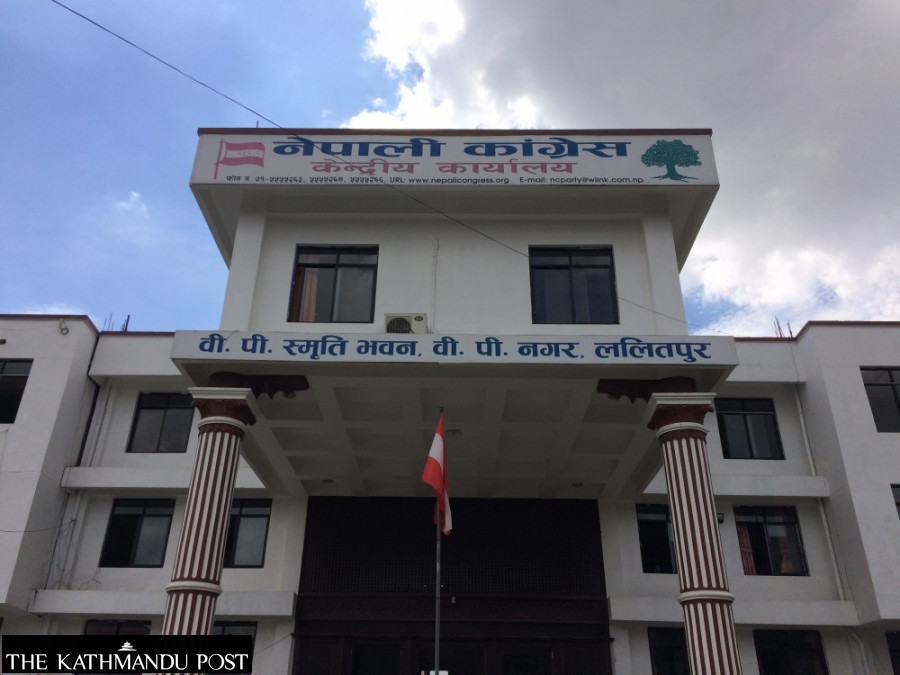National
Decision to prorogue House session irks Nepali Congress
The main opposition calls a joint meeting of party lawmakers to discuss the government move amid its demand for a home minister probe.
Post Report
With several crucial bills remaining to be endorsed, the government’s decision to prorogue the winter session of Parliament has irked the main opposition, Nepali Congress. More than two months since its commencement, the bill session endorsed just three bills despite the government’s promise to pass much of the essential legislation.
The government had also announced to amend at least a dozen laws to ensure an investment-friendly environment ahead of the third Nepal Investment Summit, which also proved hollow.
At a time when the Nepal Congress is demanding a parliamentary committee to investigate Deputy Prime Minister and Minister for Home Affairs Rabi Lamichhane for allegedly embezzling cooperative funds, the main opposition finds the government’s decision to abruptly end the House of Representatives session fishy.
To chart out its strategy on the heels of the government’s decision to prorogue the House session, the Congress has called a meeting of its parliamentary party and parliamentary committee on Sunday morning.
The parliamentary party consists of members of the House and the National Assembly.
The parliamentary committee consists of the party's parliamentary leader, deputy leader, parliamentary leader of the upper house, chief whip, whip, and the Congress general secretaries.
The government has refused to form a parliamentary probe against Home Minister Lamichhane. Some ruling party leaders, including CPN-UML Chairman KP Sharma Oli, have accused the Congress of obstructing the House session and forcing the government to prorogue it.
However, the government on Friday decided to recommend that President Ramchandra Paudel prorogue the federal parliament session effective from Sunday midnight.
Congress leaders said that since the government is escaping its responsibility to form the parliamentary probe against the home minister and is unable to give any business to the House, the party needs to tell the people it is the government that takes the blame.
“We oppose the government’s decision to prorogue the House session,” said Shyam Ghimire, a Nepali Congress lawmaker. “We were preventing the home minister from speaking from the rostrum but we did not obstruct other House proceedings.”
The home minister was supposed to table a bill related to the political parties but due to protest from the Congress, he could not do so.
“If the government’s intent was positive, it could allow other ministers to table the bill in the House. But it didn’t do so, showing that the government wants confrontation,” said Ghimire. “There are several instances of parliamentary probe committees formed when such questions were raised against sitting ministers.”
According to the Congress lawmaker, they also made it clear that the ruling parties will have a majority on such a committee and even the coordinator could be someone from the ruling parties. “Despite being given all those benefits, why are the ruling parties not ready to form the committee?”
Rastriya Prajatantra Party and other fringe parties have joined the main opposition in demanding the parliamentary probe committee.
“We are not going to backtrack on our decision because it is our bottom line,” a Congress office bearer said. “We have been demanding the formation of the committee but the government decided to prorogue the session. This means it is under tremendous pressure and a moral dilemma.”
There is no alternative for the government but to form the committee because “we will take our agenda to the next session too”, said the leader.
Some Congress lawmakers said the government made a joke of the upcoming investment summit for which it committed to amending at least a dozen laws believed to be hindering investments in the country.
A secretary-level committee had recommended amending the laws in order to improve the country’s investment climate.
If the government was serious about tapping investment and wanted to remove the bottlenecks, why did not it table the bill in the House, Nepali Congress lawmaker Ramhari Khatiwada, who chairs the State Affairs Committee of the House, questioned.
“This shows the government is not serious about the investment summit and it will erode the state’s credibility.”
However, the government looks set to introduce ordinance to address legal issues ahead of the third investment summit.
If needed, the government will issue ordinances and amend the laws, Prime Minister Pushpa Kamal Dahal said while addressing the 58th annual general meeting of the Federation of Nepalese Chambers of Commerce and Industries on Wednesday.
“We need to amend 12 laws. If it’s essential, we will amend them through an ordinance,” the prime minister said, committing to improving the legal framework to facilitate investments.
Ahead of such an important event, the prime minister is talking about ordinance to amend laws, said former foreign minister Ramesh Nath Pandey. “Amending laws through ordinance will not boost investors’ confidence.”
The government is organising the investment summit on April 28 and 29, presenting 132 big, medium and small projects before potential investors.




 10.12°C Kathmandu
10.12°C Kathmandu













